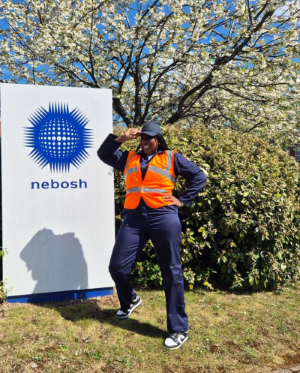NEBOSH funds SOWSHE-A’s research into personal protective equipment for African women
Thursday, 1 May 2025
Personal protective equipment (PPE) is the last line of defence for protecting people from health and safety hazards. If it doesn't fit, the wearer is not adequately protected and can be at increased risk of harm.

The National Examination Board for Occupational Safety and Health (NEBOSH) is funding a research project to understand the needs of African women who use PPE. Many women workers wear PPE designed for men and can be put in danger by the equipment meant to protect them; ill-fitting footwear can lead to slips and trips, oversized clothing could cause entanglement and protective headwear is compromised by poor fit, for example.
The research will be carried out by the Society of Women in Safety, Health and Environment – Africa (SOWSHE-A). During the year-long project, it will undertake research, public demonstrations, simulations and community campaigns to highlight the risks and anthropometric considerations for black African women.
NEBOSH Social Development Manager, Mariyah Mandhu, says: “There is limited international data related to women's protective equipment, and even less so for women from different ethnic backgrounds. By partnering with SOWSHE-A, we hope to be part of a really impactful project. Our funding will enable the health and safety and wider business communities to understand the challenges and barriers of current PPE, with a longer-term view of creating inclusive PPE design and production practices. Ultimately, this will improve the safety and health of these women in the workplace.”
Funmi Adegbola, Founder of SOWSHE-A, adds: "We are thrilled to have NEBOSH’s support in advancing this important initiative. Their commitment to workplace safety and health aligns perfectly with our goal of ensuring that African women are equipped with the right PPE to protect their well-being. This collaboration is not only vital for improving the safety of women workers, but it also strengthens the movement for greater gender equity in the workplace."
